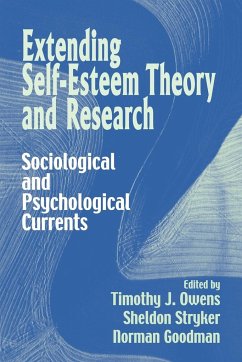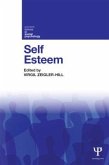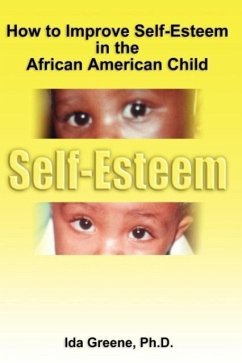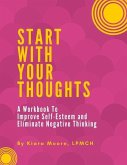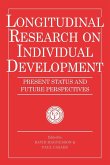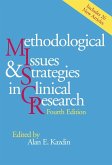This work serves as a comprehensive statement on self-esteem theory and research.
Self-esteem is an academic and popular phenomenon, vigorously researched and debated, sometimes imbued with magical qualities, other times vilified as the bane of the West's preoccupation with self. Though thousands of articles have been devoted to the topic, and bookshops work to feed the public's appetite for advice on revealing, enhancing and maintaining self-esteem, conflicting claims and findings have placed the field in disarray. In a very real sense, self-esteem is a victim of its own popularity. This book seeks to add clarity to a concept earlier examined by such notable self theorists as Morris Rosenberg but eminently worthy of re-examination and extension. We do this by asking some leading thinkers on self-esteem theory, measurement and application to assess what we know about self-esteem, and link it to important aspects of society and the human experience.
Review quote:
'This volume is an exceptionally fine resource for both novices and professionals interested in the current diversity of research into self-esteem and in issues for future research.' Ralph H. Turner, Professor Emeritus of Sociology, University of California, Los Angeles
'An important resource for social, personality, developmental, and clinical psychologists interested in self-esteem.' Mark Leary, Professor of Psychology, Wake Forest University and editor of Self and Identity
Table of contents:
List of contributors; Part I. The Frame: 1. The future of self-esteem: an introduction Timothy J. Owens and Sheldon Stryker; 2. The self as social product and social force: Morris Rosenberg and the elaboration of a deceptively simple effect Gregory C. Elliot; Part II. Conceptual and Methodological Issues: 3. Theorizing the relationship between self-esteem and identity Laurie H. Ervin and Sheldon Stryker; 4. Measuring self-esteem: race, ethnicity, and gender considered Timothy J. Owens and Adam King; 5. The self as a social force Viktor Gecas; 6. Self-certainty and self-esteem Ron Wright; Part III. Social and Life Course Contexts of Self-Esteem: 7. Self-esteem of children and adolescents David H. Demo; 8. Failure of the dream: notes for a research program on self-esteem and failed identity in adulthood Norman Goodman; 9. Self-esteem and work across the life course Carmi Schooler and Gary Oates; 10. Comfort with the self Roberta G. Simmons; Part IV. Self-Esteem and Social Inequalities: 11. Self-esteem and race Pamela Braboy Jackson and Sonia P. Lassiter; 12. Gender and self-esteem: narrative and efficacy in the negotiation of structural factors Anne Statham and Katherine Rhoades; 13. Bereavement and the loss of mattering Leonard I. Pearlin and Allen J. LeBlanc; 14. Self-esteem and social inequality L. Edward Wells; 15. Self-evaluation and stratification beliefs Matthew O. Hunt; Part V. Self-Esteem and Social Problems: 16. The science and politics of self-esteem: schools caught in the middle Martin V. Covington; 17. Self-esteem and deviant behavior: a critical review and theoretical integration Howard B. Kaplan; 18. Low self-esteem people: a collective portrait Morris Rosenberg and Timothy J. Owens; Index.
Self-esteem is an academic and popular phenomenon, vigorously researched and debated, sometimes imbued with magical qualities, other times vilified as the bane of the West's preoccupation with self. Though thousands of articles have been devoted to the topic, and bookshops work to feed the public's appetite for advice on revealing, enhancing and maintaining self-esteem, conflicting claims and findings have placed the field in disarray. In a very real sense, self-esteem is a victim of its own popularity. This book seeks to add clarity to a concept earlier examined by such notable self theorists as Morris Rosenberg but eminently worthy of re-examination and extension. We do this by asking some leading thinkers on self-esteem theory, measurement and application to assess what we know about self-esteem, and link it to important aspects of society and the human experience.
Review quote:
'This volume is an exceptionally fine resource for both novices and professionals interested in the current diversity of research into self-esteem and in issues for future research.' Ralph H. Turner, Professor Emeritus of Sociology, University of California, Los Angeles
'An important resource for social, personality, developmental, and clinical psychologists interested in self-esteem.' Mark Leary, Professor of Psychology, Wake Forest University and editor of Self and Identity
Table of contents:
List of contributors; Part I. The Frame: 1. The future of self-esteem: an introduction Timothy J. Owens and Sheldon Stryker; 2. The self as social product and social force: Morris Rosenberg and the elaboration of a deceptively simple effect Gregory C. Elliot; Part II. Conceptual and Methodological Issues: 3. Theorizing the relationship between self-esteem and identity Laurie H. Ervin and Sheldon Stryker; 4. Measuring self-esteem: race, ethnicity, and gender considered Timothy J. Owens and Adam King; 5. The self as a social force Viktor Gecas; 6. Self-certainty and self-esteem Ron Wright; Part III. Social and Life Course Contexts of Self-Esteem: 7. Self-esteem of children and adolescents David H. Demo; 8. Failure of the dream: notes for a research program on self-esteem and failed identity in adulthood Norman Goodman; 9. Self-esteem and work across the life course Carmi Schooler and Gary Oates; 10. Comfort with the self Roberta G. Simmons; Part IV. Self-Esteem and Social Inequalities: 11. Self-esteem and race Pamela Braboy Jackson and Sonia P. Lassiter; 12. Gender and self-esteem: narrative and efficacy in the negotiation of structural factors Anne Statham and Katherine Rhoades; 13. Bereavement and the loss of mattering Leonard I. Pearlin and Allen J. LeBlanc; 14. Self-esteem and social inequality L. Edward Wells; 15. Self-evaluation and stratification beliefs Matthew O. Hunt; Part V. Self-Esteem and Social Problems: 16. The science and politics of self-esteem: schools caught in the middle Martin V. Covington; 17. Self-esteem and deviant behavior: a critical review and theoretical integration Howard B. Kaplan; 18. Low self-esteem people: a collective portrait Morris Rosenberg and Timothy J. Owens; Index.

